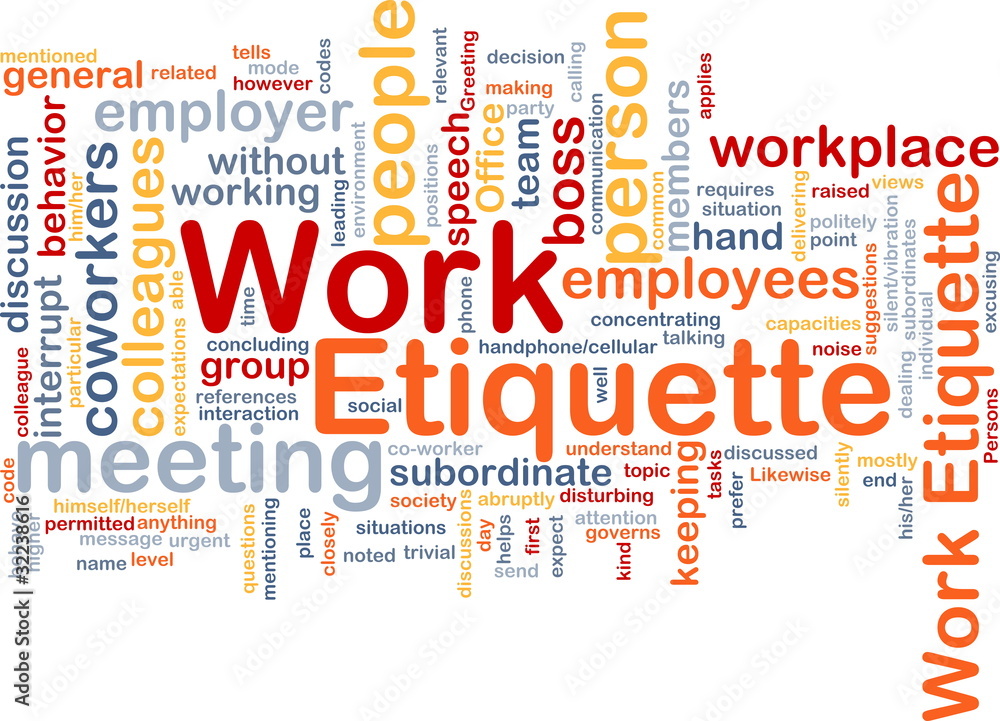
By James Pak
The author is head counselor of LA Career Coaching.
[The first of two-part column]
The Wall Street Journal recently published an article about the struggles of recent college graduates adapting to corporate office environments. This challenge is largely due to recent college graduates experiencing much of their college education and internship experiences virtually due to the Covid-19 pandemic, thus missing out on crucial ‘soft skills’ training. These skills include understanding body language, navigating meetings, networking, dressing professionally, and mastering formal event etiquette.
In light of this, I’ve decided to compile some office etiquette tips to help young professionals transition smoothly into the workplace. Here is Part 1 of 17 important office etiquette tips for new graduates entering the professional world:
1. Punctuality: Punctuality is crucial in a professional setting. It signifies respect for others’ time and conveys your dedication and reliability. Whether it’s showing up for work, attending meetings, or honoring appointments, strive to be on time or even a few minutes early.
2. Dress Appropriately: Adhering to your workplace dress code is fundamental to maintaining a professional image. The way you dress speaks volumes about your respect for the institution and its norms. Dress codes can range from formal to business casual, and understanding what is expected can significantly impact first impressions. It’s always better to err on the side of slightly overdressed than underdressed, especially for important meetings or events.
3. Respect Shared Spaces: Shared spaces in the office, such as break rooms, conference rooms, or common areas, are communal property. Keeping these areas clean and tidy shows respect for your colleagues and creates a more pleasant and productive work environment. This includes cleaning up after yourself, not leaving personal belongings scattered around, and being mindful of how your actions affect others. A clean workspace promotes productivity and harmonious coexistence.
4. Practice Active Listening: Active listening is about more than just not talking when others are speaking. It’s about demonstrating engagement and interest, providing feedback, and confirming understanding to avoid miscommunication. This shows respect for your colleagues’ opinions and ideas, fosters open communication, and can lead to better team collaboration and problem-solving.
5. Use a Professional Tone: Using a professional tone in both written and verbal communication is key to maintaining a respectful workplace. This means being clear, concise, and polite in all interactions. Avoid overly casual language, jargon, or slang that may be misconstrued. Professionalism in communication enhances credibility and prevents unnecessary misunderstandings.
6. Avoid Gossip: Office politics and gossip can create a toxic work environment. Steer clear of such situations to maintain your professional reputation. Focusing on your work and positive interactions rather than participating in potentially harmful rumors demonstrates maturity and professionalism. It also helps foster a more supportive and productive work culture.
7. Keep Noise Levels Down: Noise levels can dramatically affect the work environment, especially in an open office. Be mindful of your volume when speaking, listening to music, or making phone calls. Consider using headphones for music or stepping into a private area for calls if possible.
8. Use ‘Please’ and ‘Thank You’: Politeness is essential in maintaining a positive and respectful work environment. Using phrases like ‘please’ and ‘thank you’ shows that you value and appreciate your colleagues. These basic manners can foster mutual respect, improve working relationships, and contribute to a more harmonious office culture.
9. Avoid Strong Scents: Fragrances, whether from perfumes, colognes, or even food, can be quite potent in a shared space and may cause discomfort or allergic reactions for some people. It’s respectful to avoid wearing strong scents or bringing strongly-smelling food items into the office. This consideration ensures a comfortable environment for all staff members and helps prevent potential health issues.


![Korean President Yoon Suk Yeol ousted from office after unanimous Constitutional Court ruling President Yoon Suk Yeol, right, delivers his closing statement at the 11th and final hearing of his impeachment trial at the Constitutional Court in Jongno District, central Seoul, on Feb. 25. [CONSTITUTIONAL COURT]](https://www.koreadailyus.com/wp-content/uploads/2025/04/0403-impeach-100x70.jpg)
![Clovine accelerates global expansion in collaboration platform market Website of Clovine, a cloud-based project management provider [Screenshot]](https://www.koreadailyus.com/wp-content/uploads/2025/04/0403-clovine-100x70.jpg)

![Hangar images indicate North Korean advances in military drone domain Satellite photos taken on March 28, included in Beyond Parallel's report on North Korea, shows what appears to be seven new drone hangars at the Banghyon Air Base. [SCREEN CATPURE]](https://www.koreadailyus.com/wp-content/uploads/2025/04/0402-Hangar-100x70.jpg)